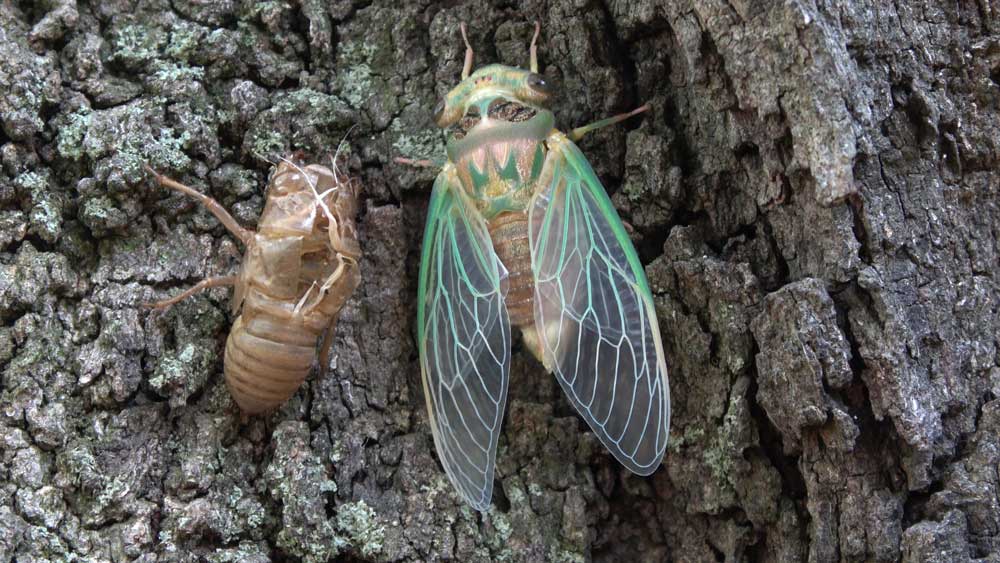Photo of cicada next to shell from Getty Images
We really didn’t want to be the ones to give you this news, but this summer, just as we (hopefully!) begin to emerge from our homes after the coronavirus pandemic, there’s going to be another situation that might keep you indoors: 17-year cicadas.
While smaller numbers of cicadas emerge every summer, this year, people in Virginia, West Virginia and some parts of North Carolina will see potentially hundreds of millions of the insects, as the 17-year brood hatches from the earth this spring.
The last time Brood IX emerged from the ground was in 2003. This time around, the cicadas are expected to arrive mid-May and should clear out by late June. They typically emerge when the soil 8” beneath the ground reaches 64 degrees, especially after a warm rain.
The massive cicada population is expected to arrive in the following counties:
Virginia: Allegheny, Bland, Franklin, Henry, Montgomery, Patrick, Pittsylvania, Roanoke
North Carolina: Ashe, Alleghany, Forsyth, Stokes, Surry, Wilkes
West Virginia: Fayette, Greenbrier, Mercer, Monroe, Pocahontas, Summers
Cicadas live underground for years before emerging from the soil all at once, swarming trees and bushes. Their loud mating song fills the air from morning until night.
Cicadas are known to damage trees, especially young fruit trees and newly transplanted shade trees. They’re also prone to dive-bombing hikers as they innocently walk down the trails, tangling themselves in your hair while they buzz and shriek (*shudder*).
Yes, it’s going to be a buggy, buzzy, crunchy six weeks. But if we can get through it, we won’t have to face the onslaught again for another 17 years.








